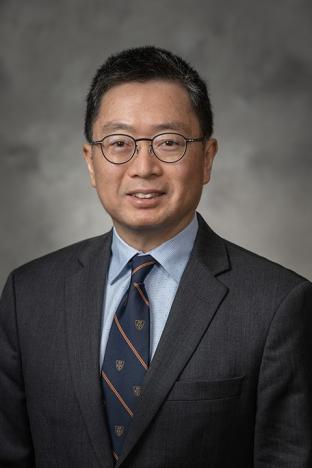The Dow Division for Health Services Research Fellowship provides fellows with the necessary background in biostatistics, clinical study design, and health service research and an opportunity to apply these clinical research skills in a mentored setting.
Clinical Segment
Trainees must commit 40 hours per week to the program and its related research activities, consonant with NRSA regulations. Within the full-time training period, research trainees who are also training as clinicians must devote their time to the proposed research training and must confine clinical duties to those that are an integral part of the research training experience. This will ensure the trainee has sufficient time to attend classes. To maintain surgical skills and remain involved in clinical medicine, trainees may elect to participate in clinical care beyond the 40 hours per week of the program. The additional clinical effort will be limited to 20 hours per week.
Research Segment
The research segment of this Fellowship will see trainees identify a research mentor and begin to plan their main clinical research project. Together with the mentor, the trainee will design a study protocol following the NIH format for a major clinical research project that will be completed in the second year of this program. Emphasis will be placed on understanding various aspects of clinical study designs, analyses and implications for health care and in preparation for submitting NIH level grants.
Year One
The trainee will participate in all coursework required by the Rackham Graduate School to obtain a master’s degree. All tuition, books and related expenses are covered under the training grant. The trainee has the opportunity to select one of the following degrees:
- Master of Public Health in Epidemiology
- Master of Science in Clinical Research and Statistical Design
- Master of Science in Health Administration
- Master of Science in Health Services Research
The concepts and methodology behind clinical and health service research will be taught in detail, and trainees will learn how to solve problems relating to the incidents and outcomes of human disease using specific examples. Trainees will identify a research mentor and begin to plan their main clinical research project.
Year Two
By the beginning of year two, the fellow will have acquired many of the skills necessary to carry out a high-quality clinical research endeavor, and will be expected to put these skills into practice. He or she will be required to initiate, complete, and report in a peer-reviewed journal an independent clinical research project relevant to Urology. Existing databases in the Department of Urology include benign prostatic hyperplasia, prostate cancer detection, radical prostatectomy, bladder cancer, impotence, female and reconstructive urology, and a population-based cohort study of prostate diseases in African American men. These databases exemplify the breadth of clinical research topics from which trainees may choose.
How to Apply
Applicants must:
- Be committed to an academic research career in Urology
- Be highly regarded as physicians by those responsible for their clinical training
- Plan to complete the clinical requirements for Urologic ACGME-approved training program by the date of entry into the program (with the exception of University of Michigan applicants who may substitute their laboratory research year for the first year of this training program)
- Be a United States citizen or a permanent resident
Application Process:
All applicants are required to submit their curriculum vitae, along with at least three letters of support, and the completed application. (PDF version). Applicants that receive a favorable review will be invited for an interview at which time official copies of undergraduate and medical school transcripts should be submitted.
Requests for more information and an applications should be directed to:
Program Director


